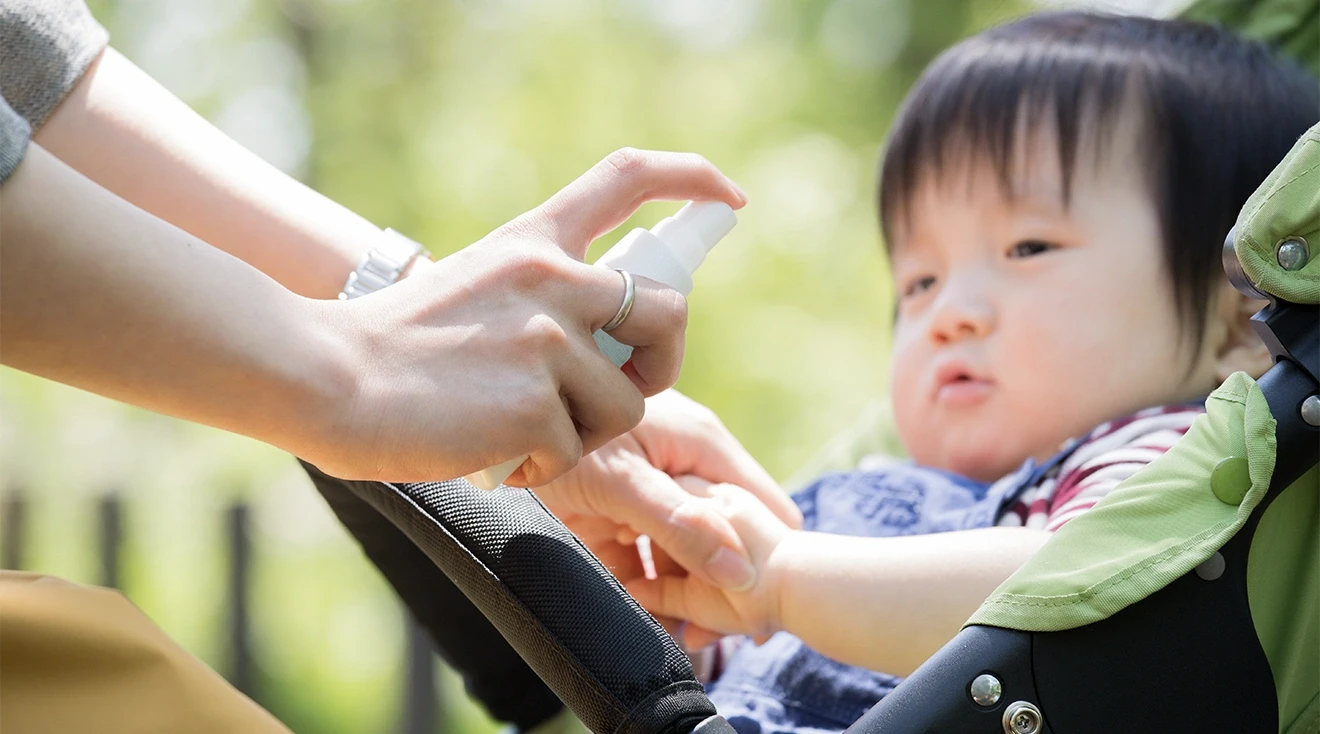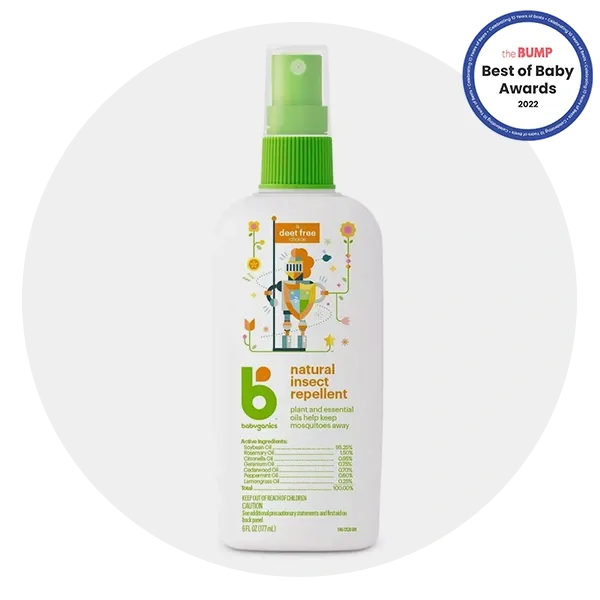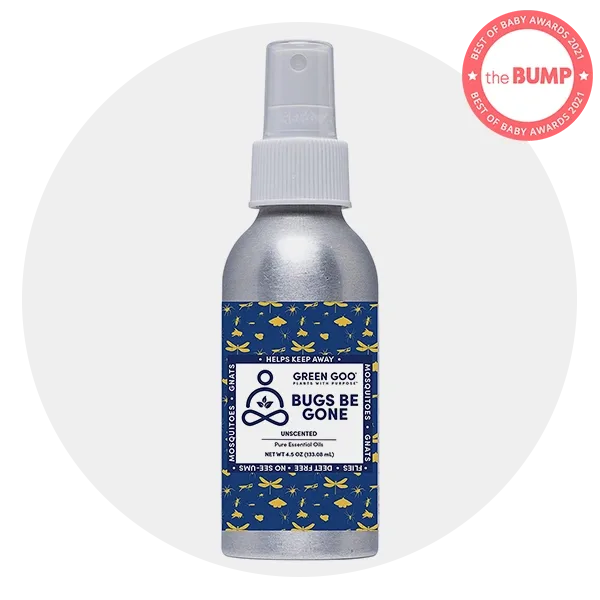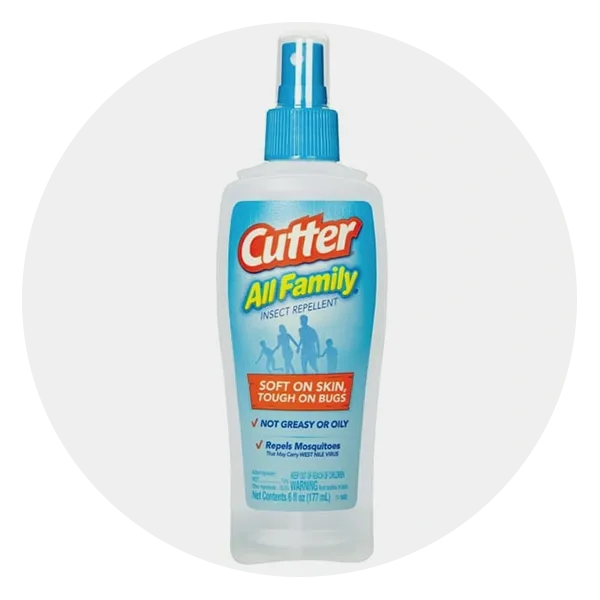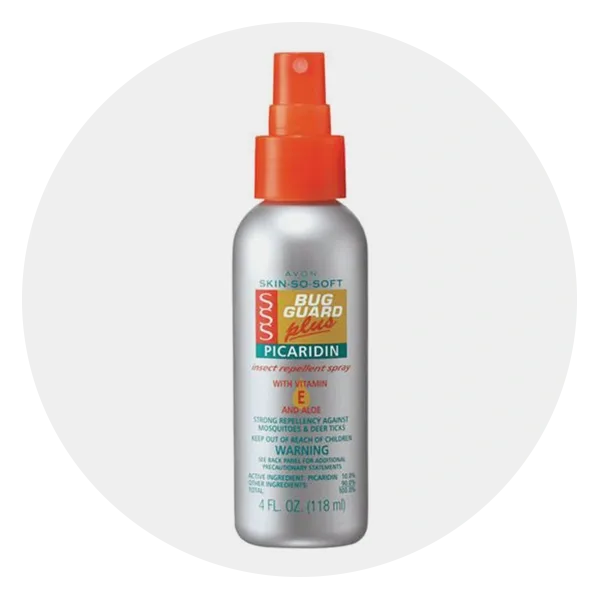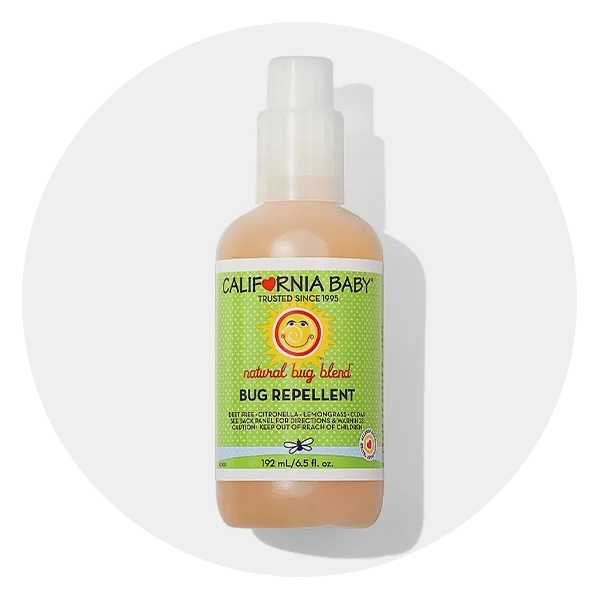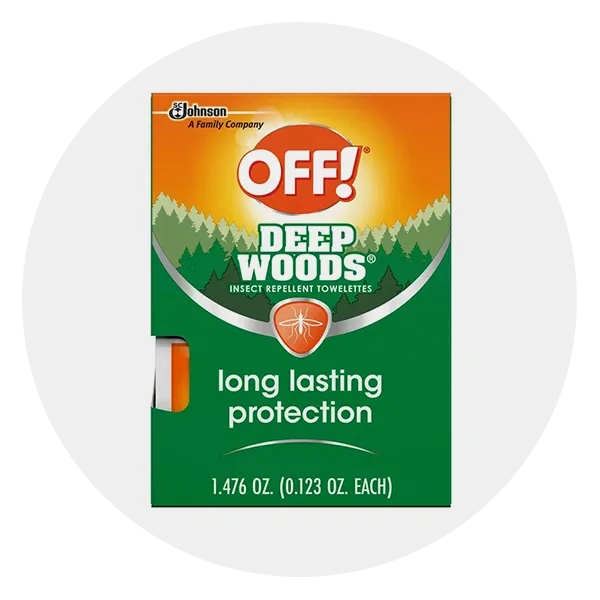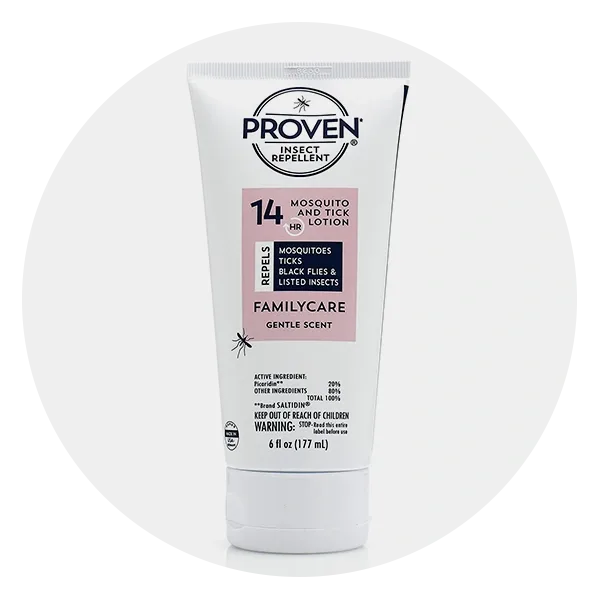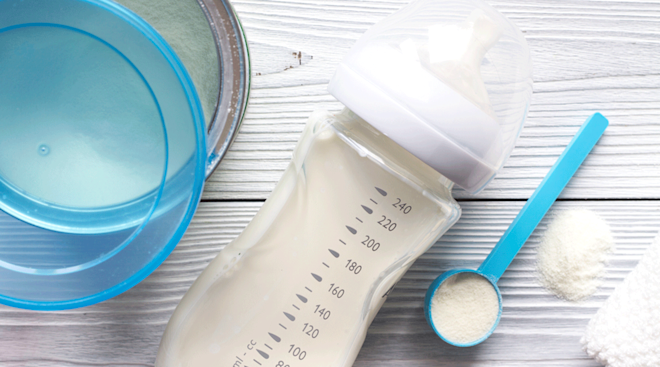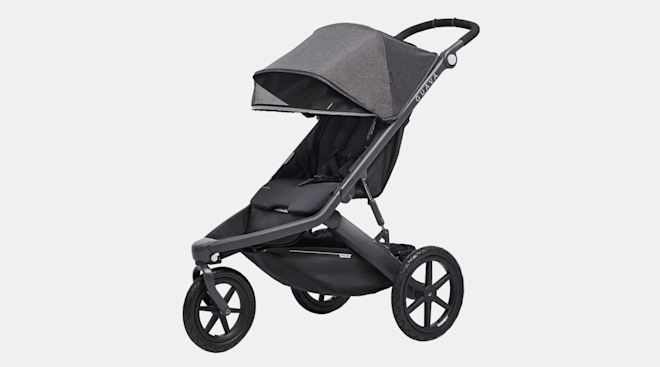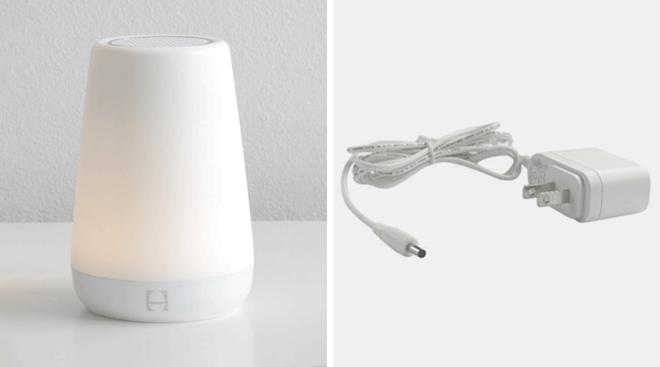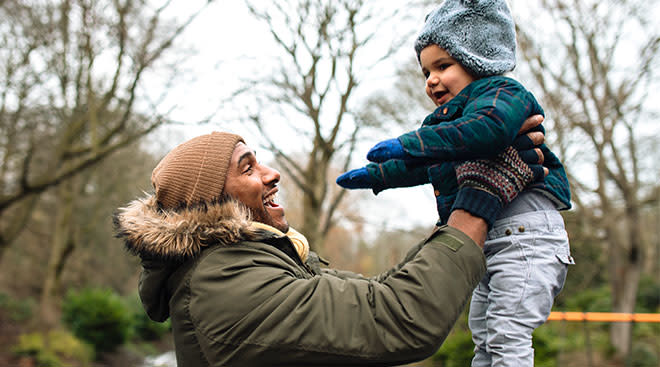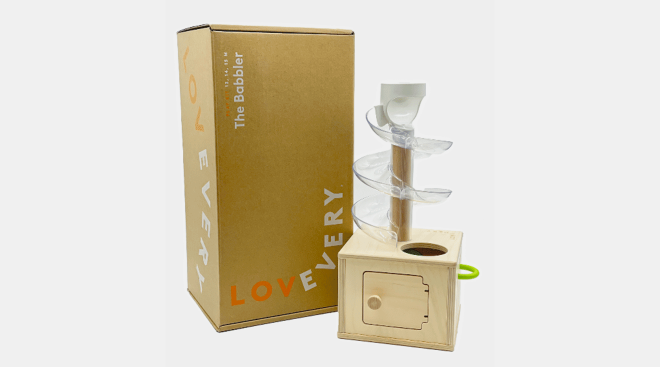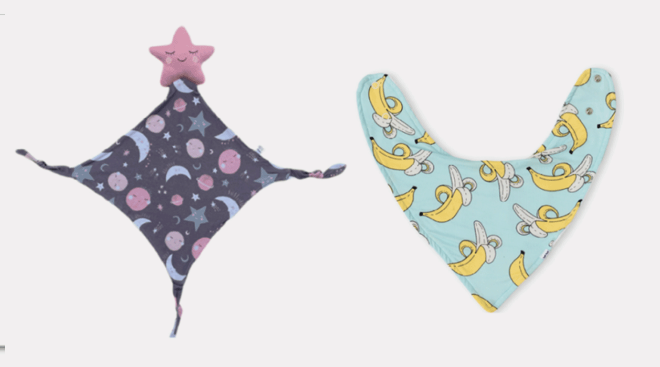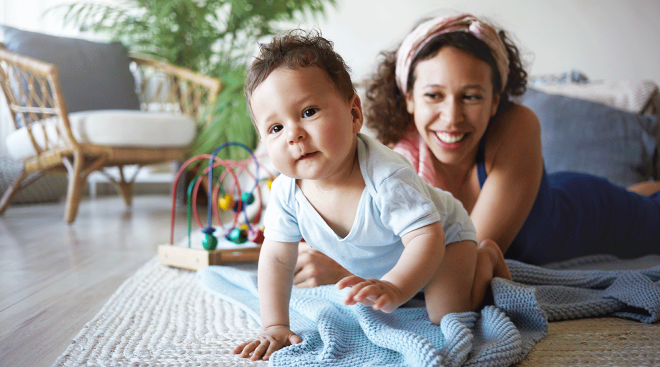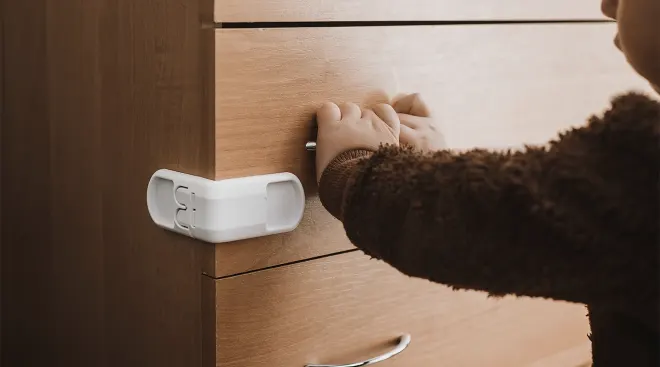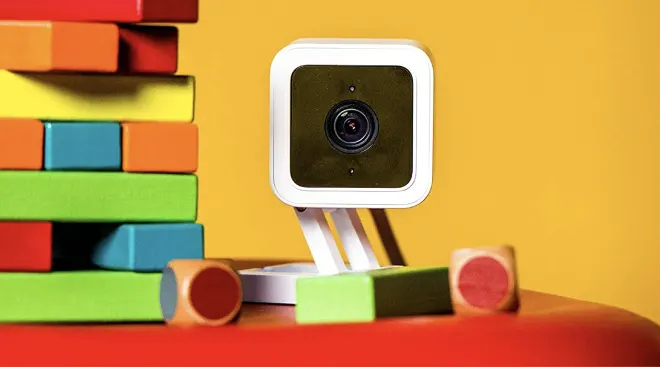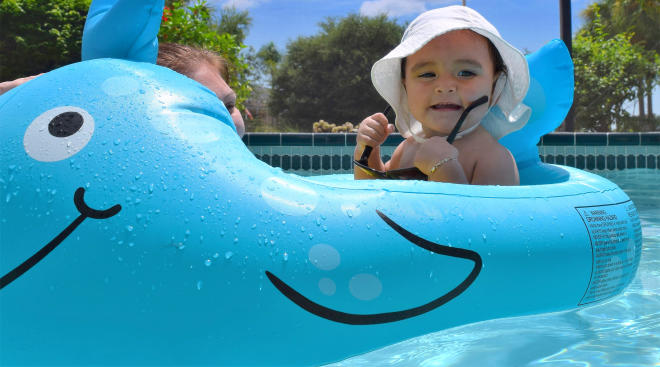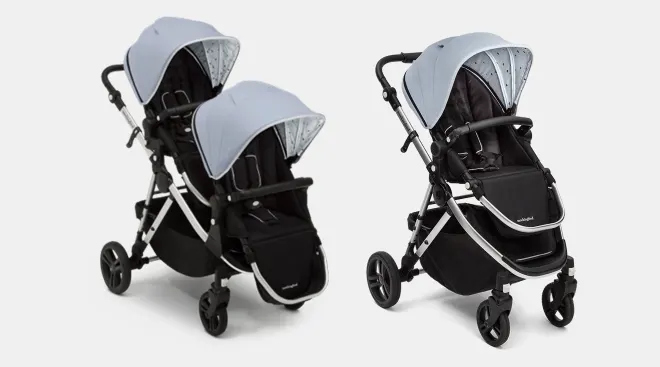The Best Bug Spray for Babies and Kids
Spending time with your little ones in the great outdoors is wonderful—that is, until the mosquitoes come out to play. No parent wants to see their kids covered in itchy insect bites, but if you happen to be in an area where insect-related illnesses like zika or lyme disease are an issue, keeping bugs at bay becomes an important health concern. Which is why parents consider bug spray a medicine cabinet must-have. But what’s the best bug spray for babies and kids? Here’s what to know about child-safe insect repellent, plus our top picks for babies and kids.
When it comes to baby bug spray, there are tons of options available—from sprays and aerosols to lotions and wipes—it can be difficult to determine which type is both safe and effective. The good news? Many insect repellents are safe to use on babies over 2-months-old. Sure, slathering baby in smelly lotions and sprays may be a chore, but remember that ticks spread Lyme disease and mosquitoes can transmit West Nile and Zika, so it’s a necessary step in insect-prone areas.
Insect repellent is strictly regulated by The United States Environmental Protection Agency (EPA), but it’s still important to read the ingredients and instructions before using a new formulation on baby. If you suspect that your child is having a reaction to an insect repellent, stop using the product, wash their skin with soap and water and reach out to a medical professional for help. Before baby hits the 2 month mark, prevent bites by dressing them in lightweight layers and covering their carrier or stroller with mosquito netting.
Not sure which baby bug spray to choose? Read up on the different options available below.
DEET bug spray
DEET is the common name for N,N-Diethyl-m-toluamide. Developed by the United States Army in 1946, DEET is the most common ingredient in US-sold insect repellents and generally considered the gold standard in effectiveness. DEET bug spray is meant to be applied directly to skin and designed to repel insects (not kill them). By messing with the neurons on their antennae and mouths, DEET forces mosquitoes, flies, gnats and chiggers to back up and buzz off.
But is DEET safe? While rumors about potential DEET dangers have been circulating for years, after much research, the conclusion is that DEET is indeed safe for babies 2 months and older (and everyone else, for that matter), as long as you use it as directed. “I always recommend insect repellents that contain DEET for the best protection against insect bites,” says CharlRe’ Slaughter-Atiemo, MD, FAAP, a Baltimore-based pediatrician and founder of CayTer 2 You Baby, a travel baby gear delivery service. “DEET has been well researched for human use and is safe and effective for anyone over 2 months of age.” Especially when you need to prevent insect-related diseases, the American Academy of Pediatrics (AAP) says DEET is the best bug spray for babies but advises parents to use formulas with the lowest concentration possible.
DEET bug spray comes in different concentrations, ranging from 4 to 100 percent. The AAP and CDC recommendation for kids (aged 2 months and older) is to use bug repellent with up to 30 percent DEET. Higher concentrations offer protection against insects for a longer period of time.
For example, 10 percent DEET bug spray offers protection for about two hours while the 30 percent concentration protects for about five hours. (Studies have shown that repellent with more than 30 percent DEET doesn’t actually offer any added protection.) The AAP recommends using the lowest concentration that’ll offer the length of protection you need. In rare cases, people using high concentrations or excessive amounts of DEET developed skin rashes, blisters and other irritations. Note that it’s only okay to use DEET bug spray for babies 2 months and older.
Picaridin bug spray
Picaridin was created in the 1980s by Bayer and is a synthetic version of a repellent found in pepper plants. Research has found it to be just as effective as DEET and a safe bug spray for babies 2 months and older. According to the EPA picaridin at 20 percent concentration effectively repels mosquitoes and ticks for up to 14 hours and flies, chiggers and gnats for up to eight hours. Plus, it’s odorless and non-greasy—two points that make it preferable to many parents. Moreover, picaridin doesn’t have the same neurotoxicity as DEET; it isn’t known to irritate the skin and is considered to be practically non-toxic if inhaled and only slightly toxic if swallowed. In fact, picaridin-based formulas are the best-selling bug repellent for babies and children in Europe and Australia.
So what’s the catch? Picaridin was only approved for sale in the US in 2005, and we don’t know as much about its long-term health effects. “Picaridin is effective, safe and has fewer unpleasant qualities when compared to DEET. However, DEET is considered to be the gold standard in terms of its effectiveness because it has been thoroughly studied and researched on humans,” Slaughter-Atiemo says. “Picaridin is a newer repellant and doesn’t have as many long-term studies with human use.”
Oil of lemon eucalyptus
If you’d prefer to use a natural bug spray, look for repellents containing Oil of Lemon Eucalyptus, another ingredient recommended by the CDC as safe and effective for children 3 and up. Oil of Lemon Eucalyptus is an extract made from the leaves of the lemon eucalyptus tree and processed to up the concentration of PMD, a natural substance that’s highly effective at repelling insects. Note that Oil of Lemon Eucalyptus is not the same as lemon eucalyptus oil, which is a pure essential oil that isn’t formulated to ward off bugs, hasn’t been tested for safety and effectiveness and isn’t registered by the EPA as an insect repellent. The advantage of Oil of Lemon Eucalyptus is that it’s a plant-based bug spray that actually works in fending off mosquitoes. However, the protection it offers usually only lasts about two hours, which is far shorter than DEET and Picaridin. “As a result, they’re less effective and have to be reapplied more frequently,” Slaughter-Atiemo says. Another disadvantage is that it contains known allergens that can irritate the skin.
Natural bug sprays with essential oils
There are lots of other natural bug repellents out there containing oils like citronella, cedar, clove, lemongrass, peppermint and soybean, among others. While botanicals may seem safer (the EPA classifies them as minimum risk), “plant oils have mainly been found to repel mosquitos only,” Slaughter-Atiemo says, and for shorter amounts of time at that. “More research needs to be done to see how well they repel ticks and other biting insects.” For a quick fix when hanging out in the backyard, some parents prefer using a natural bug spray for babies—but they’re not the best bet if you’re in an area with insect-borne diseases. Lastly, natural plant oils aren’t regulated by the FDA, and while allergic reactions are rare, Slaughter-Atiemo says, they can still happen when using natural bug sprays with essential oils.
Figuring out which are the best baby-safe bug sprays is only half the battle—the other half is learning how to properly and safely apply the insect repellent. Our advice? Always read the product instructions before application. Here, top tips from the CDC on what you should and shouldn’t do when applying bug spray for kids.
- DO keep your child’s skin covered in lightweight clothing as much as possible, and try to cover exposed skin—for example, tucking pants into socks.
- DON’T use fragranced products such as scented laundry detergent or lotions, which can attract biting insects.
- DO consider using a mosquito net over your stroller or infant carrier.
- DON’T use insect repellent on babies under 2 months old.
- DO choose insect repellents approved for use on children and follow directions on the package.
- DON’T use sunscreen and insect repellent combination products. “The DEET will lessen the effectiveness of the Sun Protection Factor (SPF) and can overexpose a child to DEET because sunscreen should be reapplied often,” Slaughter-Atiemo says.
- DO spray insect repellent on your hands before rubbing it onto baby; that way, it’s only going on baby’s skin and not in the air where you’ll both breathe it in
- DON’T apply insect repellent near the eyes and mouth, and, for small children, hands, as they may put their hands in their mouth.
- DO spray repellents in open areas, then quickly move away. This will help you avoid inhaling the products.
- DON’T store products within children’s reach or let them apply their own repellent. Apply it for them, then make sure to wash your hands.
- DO wash off the insect repellent with soap and water once you come back inside, and throw those clothes in the wash.
Whether you’re looking for DEET bug spray, a picaridin option or a natural insect repellent, we’ve rounded up the best bug sprays for babies and families. As with all products—even those that are specifically designed for children—it’s wise to discuss any new products with your pediatrician, who can advise you on the best mosquito repellent for babies and bigger kids.
Best overall bug spray for babies
- Gentle on sensitive skin
- Pleasant non-cloying scent
- Free from harsh chemicals
- It doesn’t repel ticks
First up on our list of the best bug spray for babies is a natural formula by Babyganics. Formulated with a blend of plant and essential oils—citronella, peppermint, rosemary, lemongrass and geranium—it’s effective and safe when used on babies 6 months and up. When used appropriately, this formula offers 4 hours of protection against mosquitoes, biting flies and gnats. While it’s packed with bug-busting ingredients, it has a light fragrance that won’t overwhelm baby’s senses. It’s also free from all harsh chemicals and DEET, and is gentle on sensitive skin. Oh, and did we mention that this bug spray won a Best of Baby award in 2022?
Specs at a glance:
- Age range: 6 months +
- Formula type: Natural
- Capacity: 6 fluid ounces
Best natural bug spray for babies
- Plant-based formula
- Offers soothing relief to bug bites
- Free from harsh chemicals
- It doesn’t repel ticks
- Formula contains alcohol
Another Best of Baby award-winning baby bug spray we love? Green Goo Bugs Be Gone. A herbal blend of yarrow, sage and funnily enough, catnip is combined with geranium, lemongrass and peppermint essential oils to create an all-natural insect repellent. It’s safe enough to spray directly onto skin and doubles as an air deodorizer. Plus, the addition of antiseptic witch hazel means it functions as a bite neutralizer too—a single spritz will relieve itchy skin. It’s also free of synthetic chemicals, DEET and citronella.
Specs at a glance:
- Age range: 3 +
- Formula type: Natural
- Capacity: 4.5 fluid ounces
Best DEET bug spray for babies
- Safe for all the family
- Non-greasy formula
- Repels mosquitoes and other biting insects
- Lower concentration of DEET may need to applied more frequently
While DEET is safe for use on infants over 2 months old, the AAP recommends choosing a baby bug spray with a low concentration possible (depending on how long you plan to spend outdoors). That’s why we're big fans of Cutter’s All Family Insect Repellent. It contains just 7 percent DEET, making it a great choice for backyard play or short jaunts outdoors. It’s non-greasy and has a light, non-offensive scent. Best of all it repels mosquitos, ticks, gnats, biting flies, chiggers and fleas—basically every annoying insect out there.
Specs at a glance:
- Age range: 2 months +
- Formula type: 7% DEET
- Capacity: 6 fluid ounces
Best picaridin bug spray for babies
- Repels mosquitos and other biting insects
- Enriched with moisturizing ingredients
- Lightly scented
- Do not exceed two applications per day
Of course, DEET and natural formulas aren’t your only option. This 10 percent picaridin baby bug spray is gentle yet effective. It repels a broad spectrum of biting insects (think: mosquitoes, deer ticks, gnats, no-seeums, sand flies and biting midges) and only needs to be reapplied every 3 to 8 hours depending on your needs. Enriched with vitamin E and aloe, it keeps skin hydrated and smooth while battling bugs. It also smells great and absorbs quickly without leaving a sticky mess.
Specs at a glance:
- Age range: 6 months +
- Formula type: 10% picaridin
- Capacity: 4 fluid ounces
Best travel-size bug spray for babies
- Plant-based and cruelty free formula
- Soothes existing bites
- Can be used from head to toe (excluding eye area)
- This bug spray must be reapplied every 30 minutes
If you’d prefer an all-natural bug spray with pure essential oils, California Baby offers a bug repellent for babies and kids that’s highly rated (in fact, it’s on Slaughter-Atiemo’s list of recommended bug spray for kids). It uses citronella, lemongrass and cedar essential oils to keep mosquitoes and other biting insects at bay. Other ingredients include soothing calendula and aloe vera, which help ease the itch of existing welts. The sprayer twists to lock and it comes in a pocket-sized bottle, so it’s great for travel and camping too.
Specs at a glance:
- Age range: 6 months +
- Formula type: Natural
- Capacity: 2 fluid ounces
Best baby bug repellent wipes for babies
- Mess-free application
- Offers up to 8 hours of protection
- Effectively repels most biting insects
- Product instructions must be followed to the letter
- Wipes are not as cost-effective as spray formulas
Looking for a mess-free option? Check out these insect repellent wipes. Each individually packed towelette is enriched with 25 percent DEET and repels ticks, biting flies, gnats, chiggers and mosquitoes that may carry the Zika, Dengue or West Nile virus. And, since these wipes are at the higher-end of the DEET spectrum, they offer up to 8 hours of lasting protection. Wipes are also a good option for squirmy kids that don’t like traditional bug spray.
Specs at a glance:
- Age range: 2 months +
- Formula type: 25% DEET
- Capacity: 12 wipes per pack
Best baby bug repellent lotion for babies
- Unscented formula
- Creamy, non-greasy lotion
- Repels mosquitos and ticks for up to 14 hours
Slightly more expensive than other options on the market
This 20 percent picaridin insect repellent offers up to 14 hours of protection against mosquito and tick species. It also repels black flies and other biting insects for up to 8 hours. The creamy lotion is easy to apply to targeted areas with a clean, non-greasy feel that leaves skin feeling soothed and moisturized. Better yet, it’s completely odorless and safe to use on babies over 2 months as well as pregnant women.
Specs at a glance:
- Age range: 2 months +
- Formula type: 20% picaridin
- Capacity: 6 fluid ounces
Sourcing a bug spray for babies that actually works can be tricky. So our goal is to do the bulk of the research for you, so you don’t have to spend hours scrolling through options online. We did this by considering a list of criteria when sourcing products, including ease of application, ingredients, value and, last but definitely not least, safety. This way you can count on getting the best baby bug spray that meets your child’s needs.
To decide which baby bug sprays, wipes and lotions are the best options on the market, we read user reviews to get the low-down on how these products work for families and didn’t consider anything with less than an average four-star rating. And since many of us are also parents, we rely on our writers’ and editors’ experience using these products with their own families.
To make sure we’re highlighting products that are safe and effective, we spoke with a pediatrician to understand essential features and safety considerations to keep top of mind when you’re shopping. We also read up on safety recommendations from the American Academy of Pediatrics, Center for Disease Control and the Environmental Protection Agency
Interested in learning more about our editorial process? Read about how our team develops and reviews all articles here.
About the expert:
CharlRe’ Slaughter-Atiemo, MD, FAAP, is a Baltimore-based pediatrician and founder of CayTer 2 You Baby, a travel baby gear delivery service.
Please note: The Bump and the materials and information it contains are not intended to, and do not constitute, medical or other health advice or diagnosis and should not be used as such. You should always consult with a qualified physician or health professional about your specific circumstances.
Plus, more from The Bump:
Navigate forward to interact with the calendar and select a date. Press the question mark key to get the keyboard shortcuts for changing dates.

































